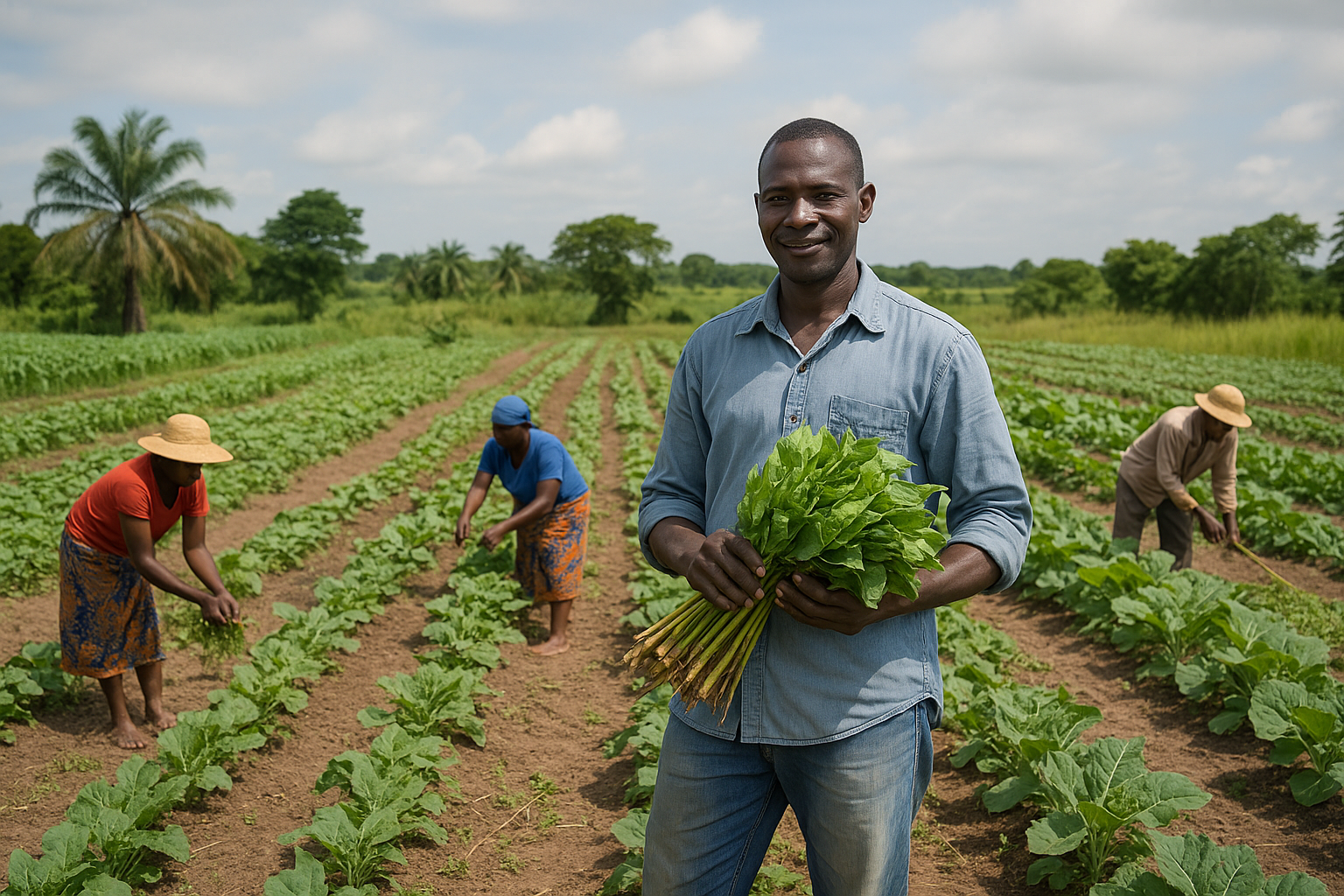IFAD Urges G7 to Invest in Africa’s Small Farmers to Tackle Hunger and Climate
Smallholder farmers supply up to 70% of Africa’s food, underpinning food security and livelihoods for hundreds of millions across the continent.

The President of the UN’s International Fund for Agricultural Development (IFAD), Alvaro Lario, has called for urgent and large-scale investment in Africa’s small-scale farmers, describing them as the first line of defence against hunger, poverty, and climate change. Lario will carry this message to the G7 Agriculture Ministers’ meeting opening tomorrow in Syracuse, Italy, which will for the first time include an Agriculture Forum for Africa—a new initiative of the Italian G7 presidency.
Africa’s Farmers at the Heart of Food Security
Smallholder farmers supply up to 70% of Africa’s food, underpinning food security and livelihoods for hundreds of millions across the continent. Agriculture is a vital pillar of African economies, projected to become a US$1 trillion sector by 2030. Studies consistently show that growth in agriculture is two to three times more effective at reducing poverty and food insecurity than growth in other sectors.
Despite this, donor support for agricultural development has stagnated at just 4-6% of official development assistance over the past decade, even as challenges mount. Climate change is already cutting into productivity, with crop yields in Africa projected to fall by up to 25% by the end of the century.
“Investing in small-scale farmers and rural entrepreneurs is the most effective way to unlock the immense potential of Africa’s agriculture and food systems for all,” said Lario.
Youth, Jobs, and Rural Transformation
One of Africa’s greatest challenges—and opportunities—is its youthful population. Millions of young people are entering the job market every year. Without adequate opportunities, food insecurity and climate shocks can drive instability.
Lario argued that thriving rural economies offer stability by providing both good food and decent jobs. The transformation of rural areas, he said, depends on digitization, green skills, technology, and access to finance—all of which can make agriculture more attractive to youth and help them build businesses along food value chains.
Connectivity and Innovation as Game Changers
The IFAD President stressed that digital technologies and rural connectivity could revolutionize African farming by:
-
Providing real-time weather and pest alerts.
-
Giving access to market data and advisory services.
-
Enabling financial inclusion through e-wallets and digital banking.
-
Supporting precision agriculture and sustainable practices.
By promoting innovation, rural Africa could leapfrog structural barriers, increase resilience, and raise productivity.
Financing the Future
Lario acknowledged that many African governments face severe financial constraints while international donor support remains low. He urged the G7 to innovate financing models and strengthen de-risking mechanisms to crowd in private investment.
This is already part of IFAD’s approach, which blends public finance with private sector partnerships to scale investments. For its upcoming 2025-2027 project cycle, IFAD has pledged that up to 60% of its core financing will be invested in Africa, making the continent its top priority.
A Continent in Need
Currently, 20% of Africa’s population—about 300 million people—suffer from hunger or undernourishment. Without urgent investment, these numbers risk worsening due to population growth, climate change, and conflicts.
Lario said the time for action is now:
“Developing thriving rural economies that provide good food and decent jobs has a stabilizing power. Now is the time to invest at scale in Africa’s small-scale food producers—the backbone of Africa’s food security and development.”
G7 Forum for Africa: A First
The Syracuse meeting marks the first time the G7 Agriculture track will include a dedicated forum on Africa, highlighting the continent’s central role in global food security and climate action. The forum aims to build a structured dialogue between G7 economies and African nations to explore new opportunities and tackle shared challenges in agriculture.










